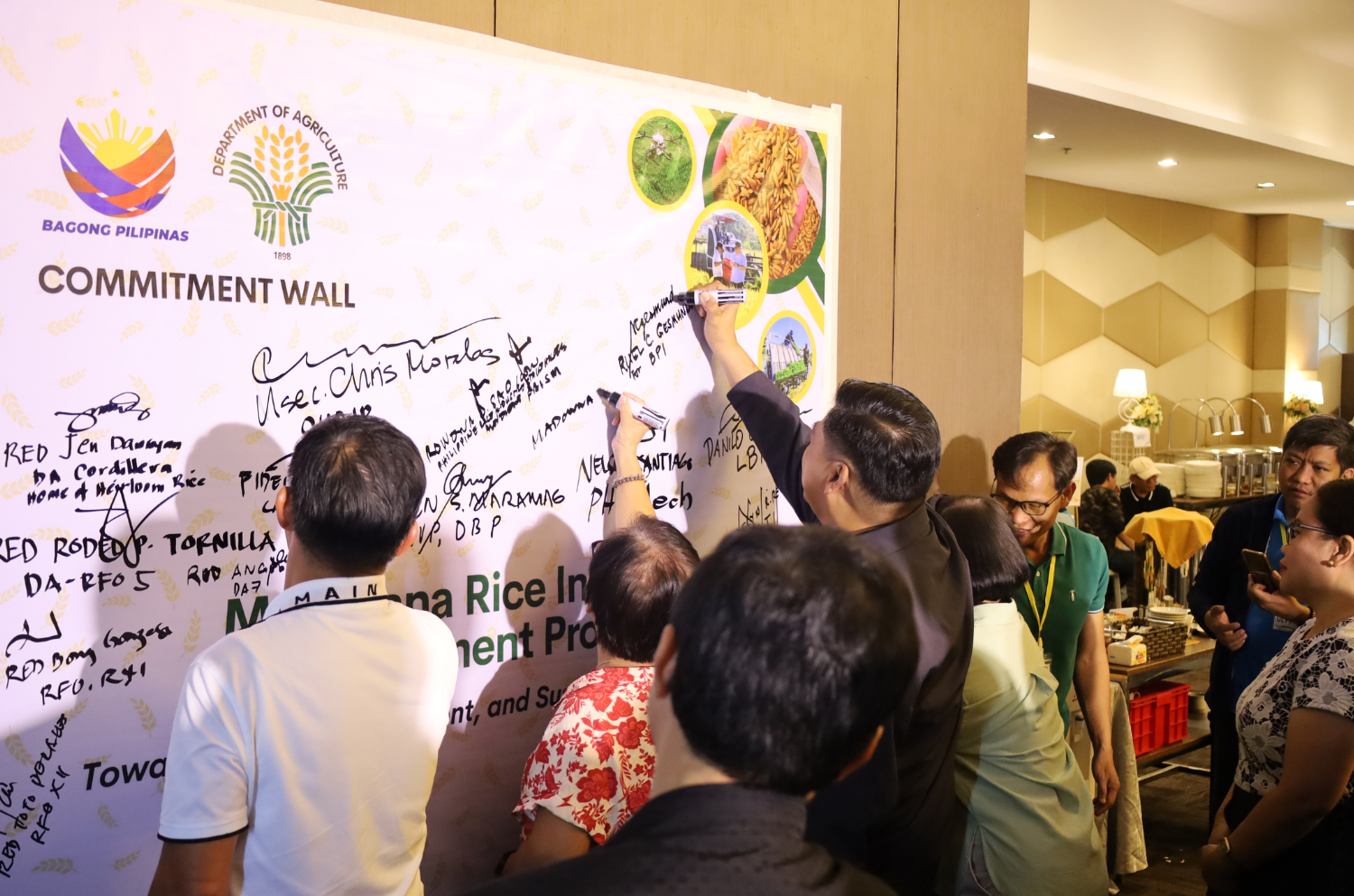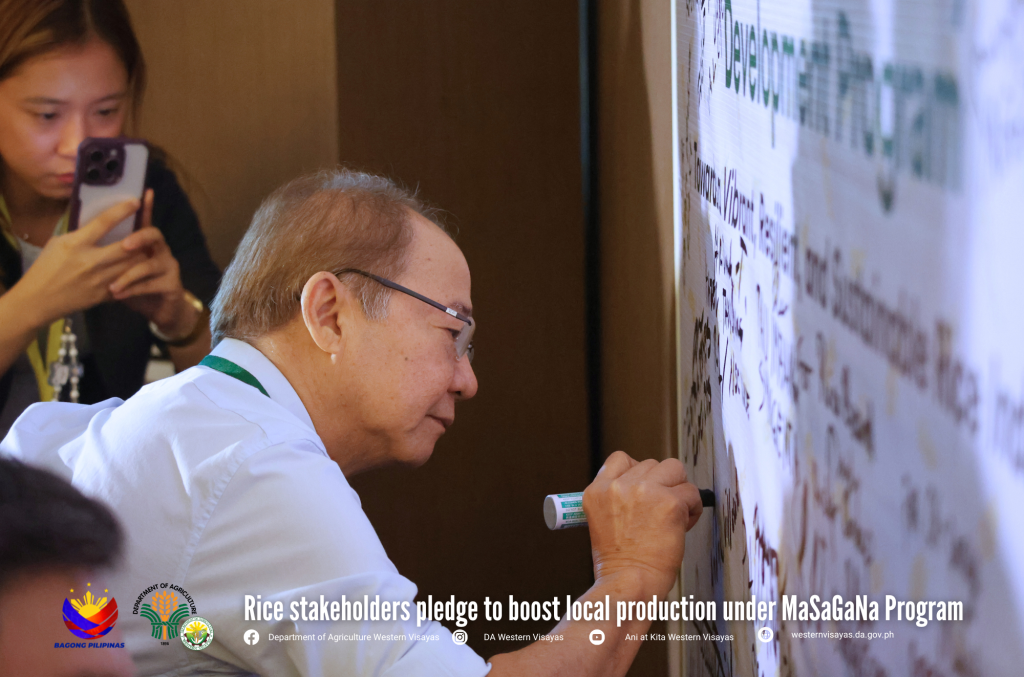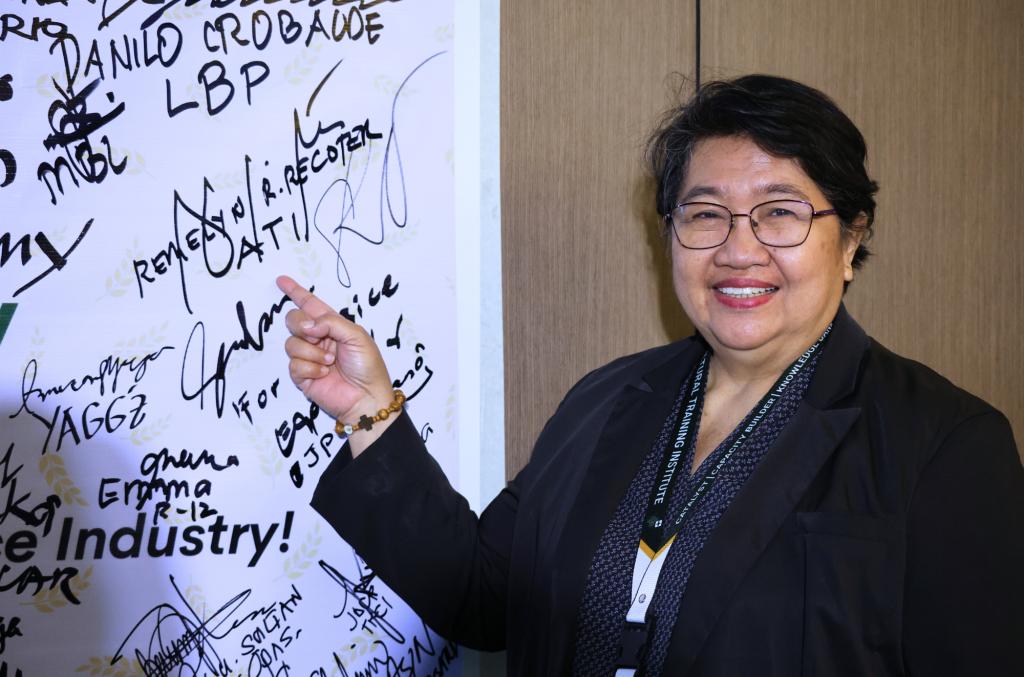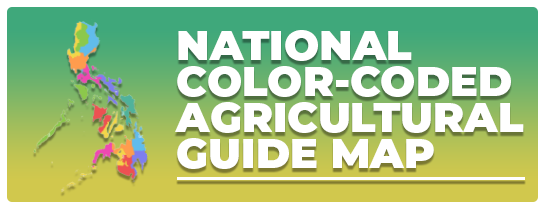Rice stakeholders pledge to boost local production under MaSaGaNa Program
Posted by: RAFIS DA6 | Posted at: November 27, 2024
In pursuit of food security, over 200 stakeholders who attended the National Rice Industry Stakeholders Conference (NRISC) in Iloilo City from November 25 to 27 signified their commitment to supporting the Masagana Rice Industry Development Program (MRIDP). The program aims to improve domestic palay production and reduce the country’s reliance on rice imports.
Department of Agriculture (DA) Undersecretary for Rice Industry Development Engr. Christopher Morales led the ceremonial recitation of the pledge of commitment, where implementers and partners vowed to deliver quality outcomes. These include fostering immediate and long-term growth in the rice sector by aligning agency efforts toward increasing rice yields and enhancing food security.
Following thorough discussions of the industry roadmap, the three-day summit also served as a platform for stakeholders to identify gaps and formulate policy recommendations to achieve targets for the rice sector.
DA Assistant Secretary for Operations and National Rice Program Director U-Nichols A. Manalo emphasized that, as outlined in the MaSaGaNa Program framework, the government will implement interventions aimed at increasing rice farmers’ income and creating opportunities for private sector-led investments. Discussions highlighted a shift from a government-centric approach to an inclusive strategy involving agencies such as the Philippine Rice Research Institute, Philippine Center for Postharvest Development and Mechanization, Bureau of Plant Industry, Agricultural Training Institute, private sector partners, and Civil Society Organizations.
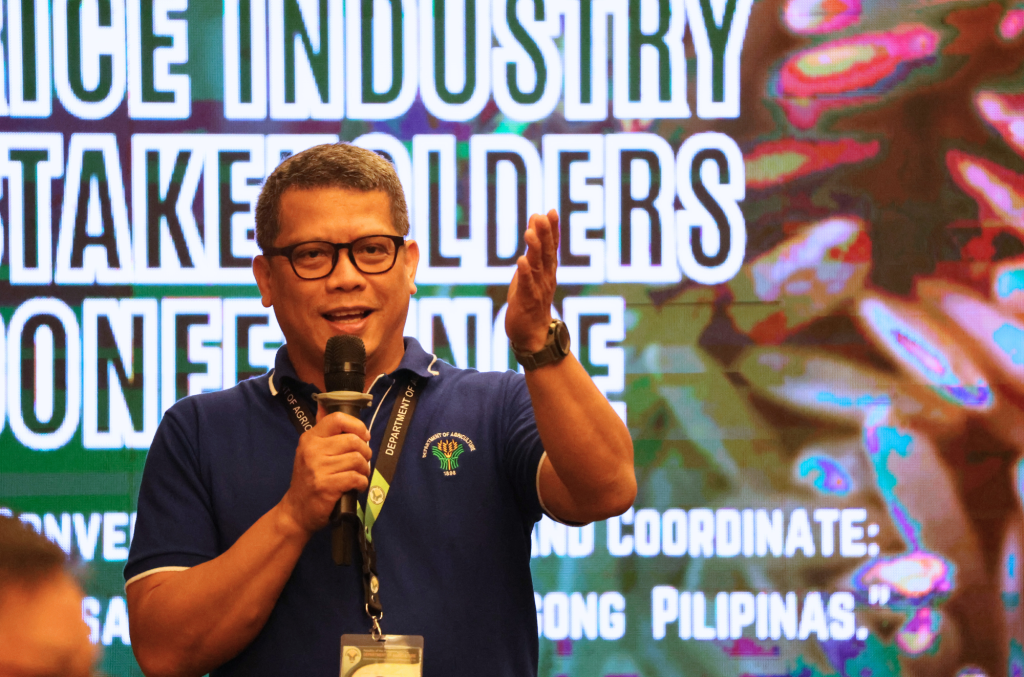
“(MRIDP) is not only the program of the DA or the government. This is the program of the nation—of the private sector, Civil Society Organizations, academe, and farmers. It should be a whole-of-nation approach to promote and improve the rice industry in the Philippines. Gradually, we can reduce our dependence on imported rice,” the program director added.
Stakeholders signed the commitment wall to support the enhanced implementation of the MaSaGaNa Program starting next year.
Moreover, in celebration of National Rice Awareness Month (NRAM) this November, Director Manalo urged the public to diversify their rice consumption patterns by promoting alternatives such as brown rice, heirloom rice, adlay, banana, and other food staples to reduce the heavy demand for white rice.
“While the administration aims to achieve a 97 percent rice self-sufficiency level by the end of this term, the focus remains on ensuring access to affordable, nutritious, and safe rice, which is the advocacy of NRAM,” he added.###Text by SMHToreno & Photos by SMHToreno and GMCordova/DA-RAFIS 6



